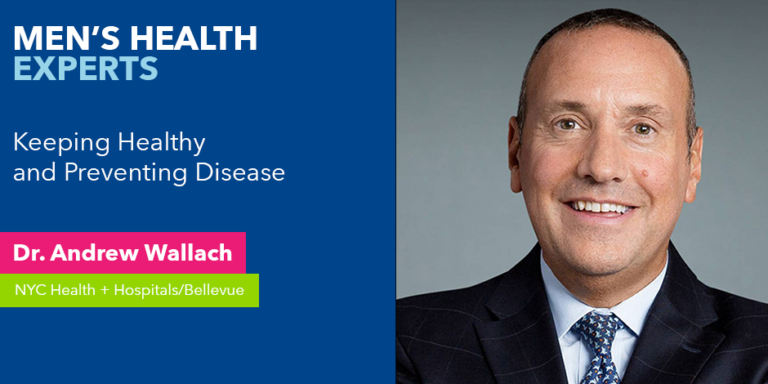Ask Our Expert: 6 Breastfeeding Tips for Mom and Baby

Breastfeeding is best for your baby. Nothing else comes close.
Breast milk is filled with the vitamins and nutrients that your baby needs. It also builds your baby’s immune system and helps their brain develop. But, from pumping to latching, it is clear that this invaluable connection between Mom and Baby can have its share of challenges.

Dr. Wendy Wilcox, Chief Women’s Health Service Officer at NYC Health + Hospitals, shares 6 tips on breastfeeding for moms and their children.
- Need Help? We are here for you. All NYC Health + Hospitals acute sites are Baby Friendly certified. This means that your health care team will do all they can to help you in your breastfeeding journey. Immediately after birth, your care team will place your baby on your chest for skin-to-skin contact, which allows baby to better regulate body temperature, spend more time in deep sleep, develop a stronger immune system and improve breastfeeding.
Your first breastfeeding sessions after birth, may be very overwhelming. Although your natural instincts may set in, our Labor and Delivery units have nurses and lactation consultants available to coach you on positioning your baby and ensuring proper latching is achieved. We also support you after you are discharged from the hospital. The NYC Health + Hospitals Community Care team provide breastfeeding support as mom and baby adjust to the home setting.
- Try Different Positions to Find What Works for You. If you think finding the right position to sleep is difficult, it’s probably second to breastfeeding. A nursing pillow is strongly recommended to support the baby’s weight and provides more ease for better positioning. Keep in mind, nursing bras will become a standard part of your daily attire 24/7, as well as nursing pads to prevent unexpected leakage. Eating a well-balanced diet and drinking plenty of water to support breastfeeding will also help for milk production. You and your baby will be exhausted after the birth, so enlist the help of family members or friends to assist with bringing the baby to you, getting you what you need and helping with household chores.
- Enjoy Bedtime with Baby. Nursing at night while comfortable in bed, is a goal. Minimize interruptions, use a nightlight with calming music and wear a nursing nightgown or pajamas to make it easier. Lastly, put the phone down and enjoy your one-on-one time with your new baby.! Don’t forget that after nursing, placing your baby in a crib without excess bedding or toys is the safest way for baby to sleep.
- Take Care of your Breasts. Sore nipples are common when breastfeeding, and are usually caused by poor latching. Sometimes a baby’s mouth will slide down the nipple during feeding, despite correct latching. If there is more distance between the baby’s nose and your breast, gently break the suction and re-latch your baby. Babies know how much breastmilk they need to take in. They usually end the feeding themselves by letting go of the breast or releasing the nipple when they fall asleep. Allowing baby to determine the length of feeding will ensure the right balance of foremilk and hindmilk. Foremilk is released at the beginning of the feed and contains more water to quench baby’s thirst. Hindmilk occurs at the end of the feed and contains more calories, satisfying baby’s hunger.
If nipples become cracked or sore, breastmilk is among the safest moisturizers available to soothe the discomfort. You can also use purified lanolin to retain water and prevent dryness or cracking. Warm water is all that is needed to clean your nipples. Try to reduce the amount of soap, shampoo and other bathing cleansers that might further irritate the area.
- Watch for Baby’s Feeding Cues and Don’t Give Up. Breastfeeding is not as easy as moms may think, but practice makes perfect, and you need to just give it time. How often you feed your baby will vary but it’s usually every few hours for newborns. Keep in mind, the more often you breastfeed your baby, the body’s natural reaction is to increase the amount of breastmilk produced.
When starting to breastfeed, try to put the baby to the breast when you notice your baby’s feeding cues such as sucking on his hands or smacking his lips. Try not to feed your baby any supplemental formula until your breastfeeding routine, and therefore your milk supply, is well established. Your baby’s stomach is the size of a marble and your baby will take in enough breastmilk by breastfeeding alone. Your baby will benefit from suckling from your nipple, as there are special antibodies which are passed from your body to him during the process. Try to reserve use of a breast pump until breastfeeding is well established.
- Continue Breastfeeding Into the Second Year. Don’t be afraid to extend breastfeeding to two years or more, if mutually desired by you and your baby. Nursing in the second year of life can help reduce infant and maternal mortality and morbidity. Parents who breastfeed their children past the one-year mark have a decreased risk for type 2 diabetes, hypertension, cardiovascular disease, and breast cancer.
More resources:



